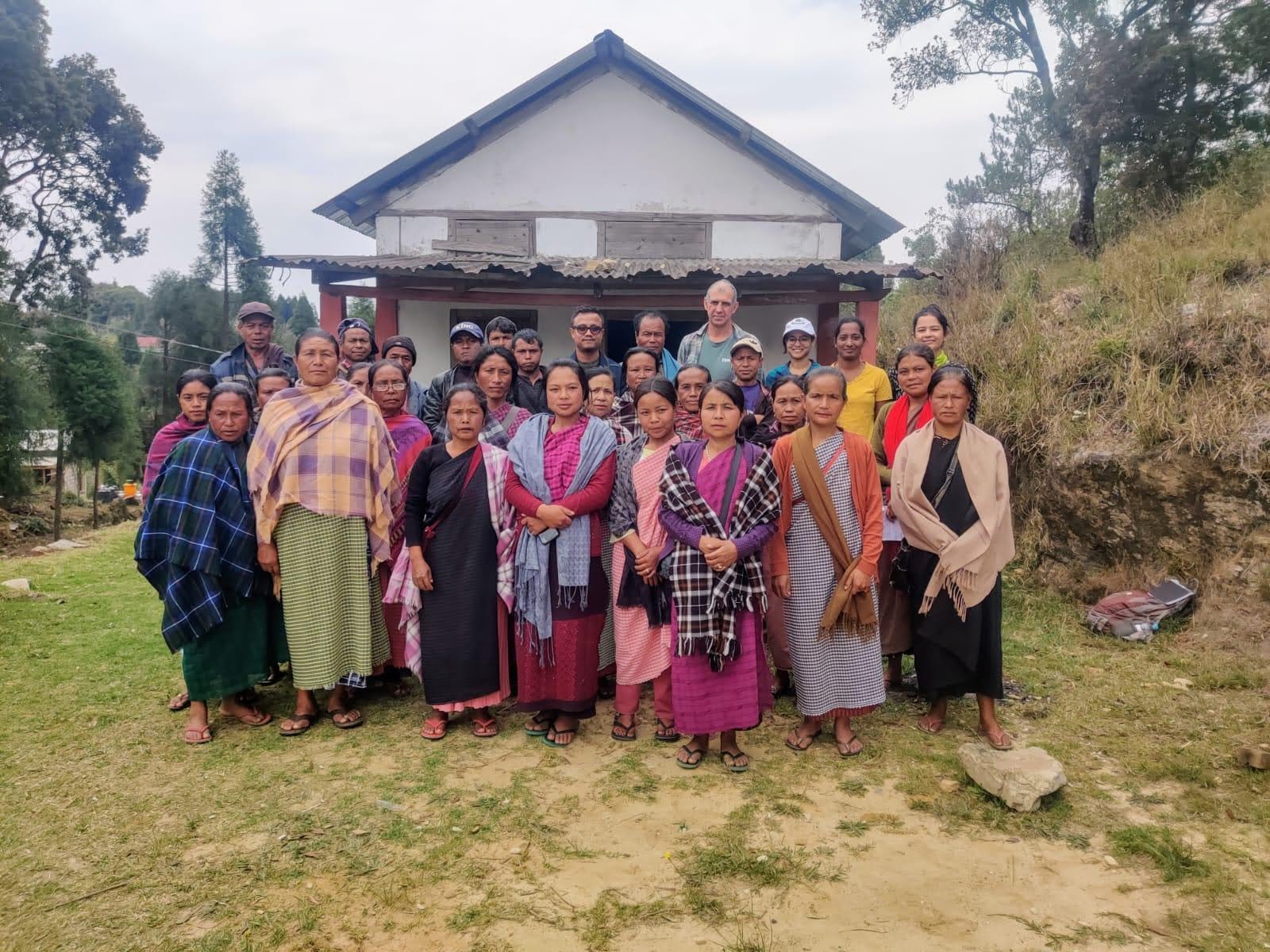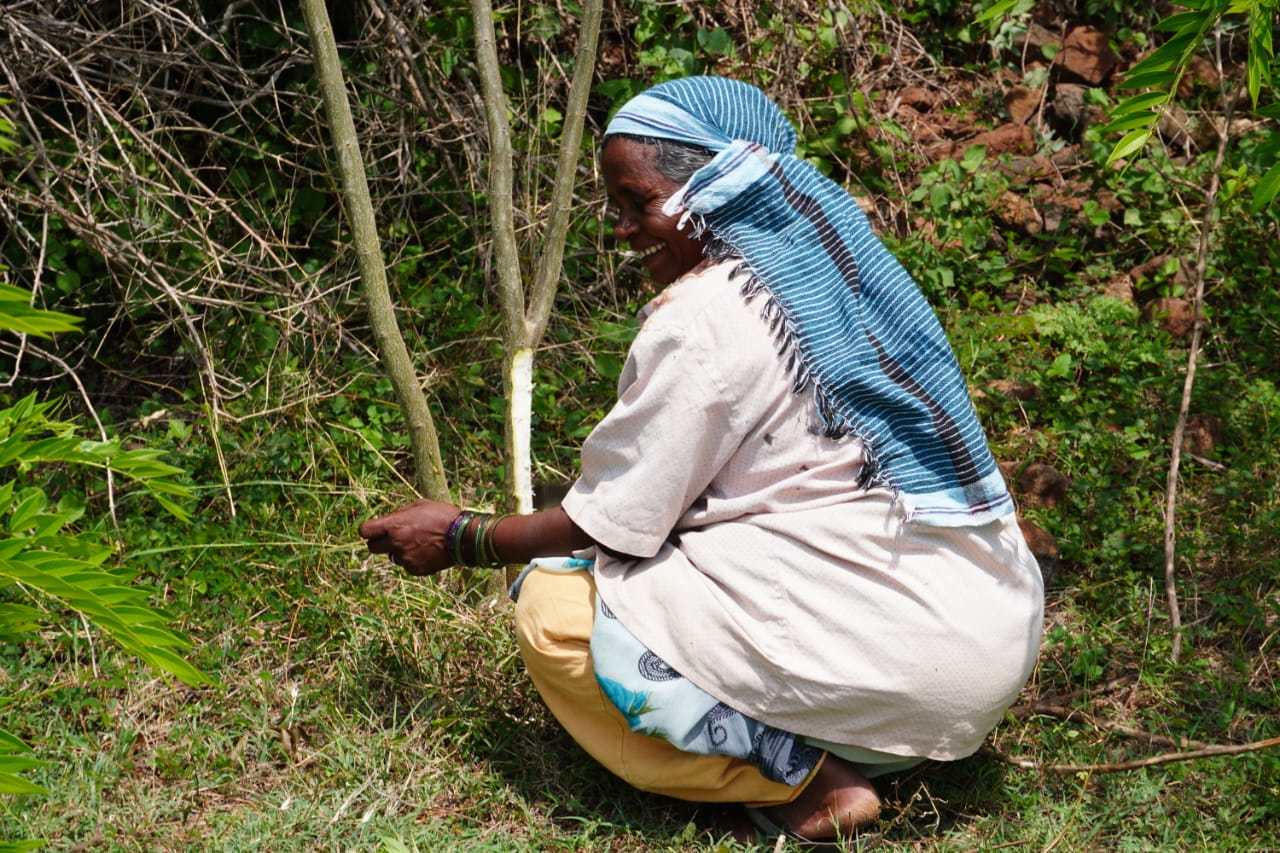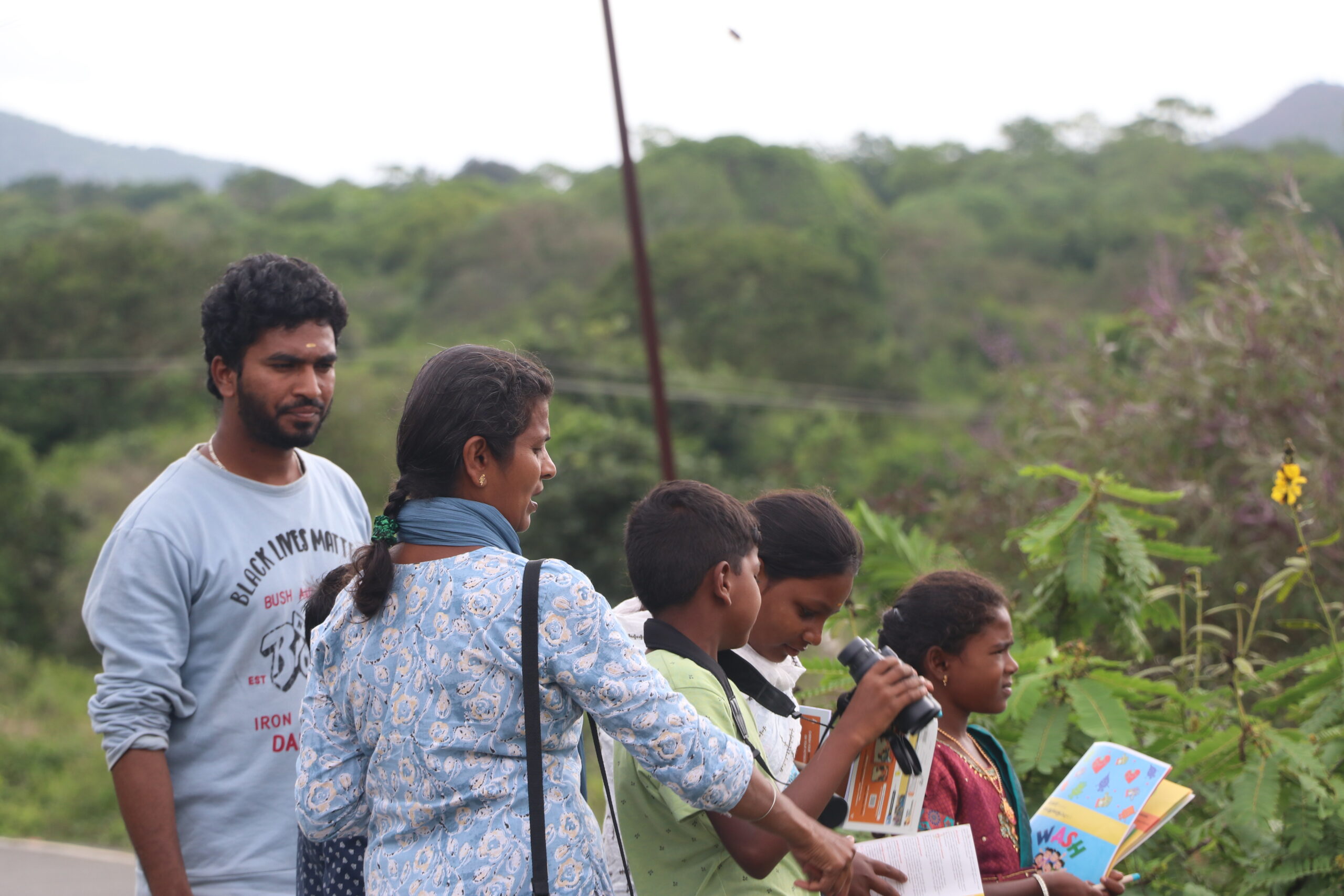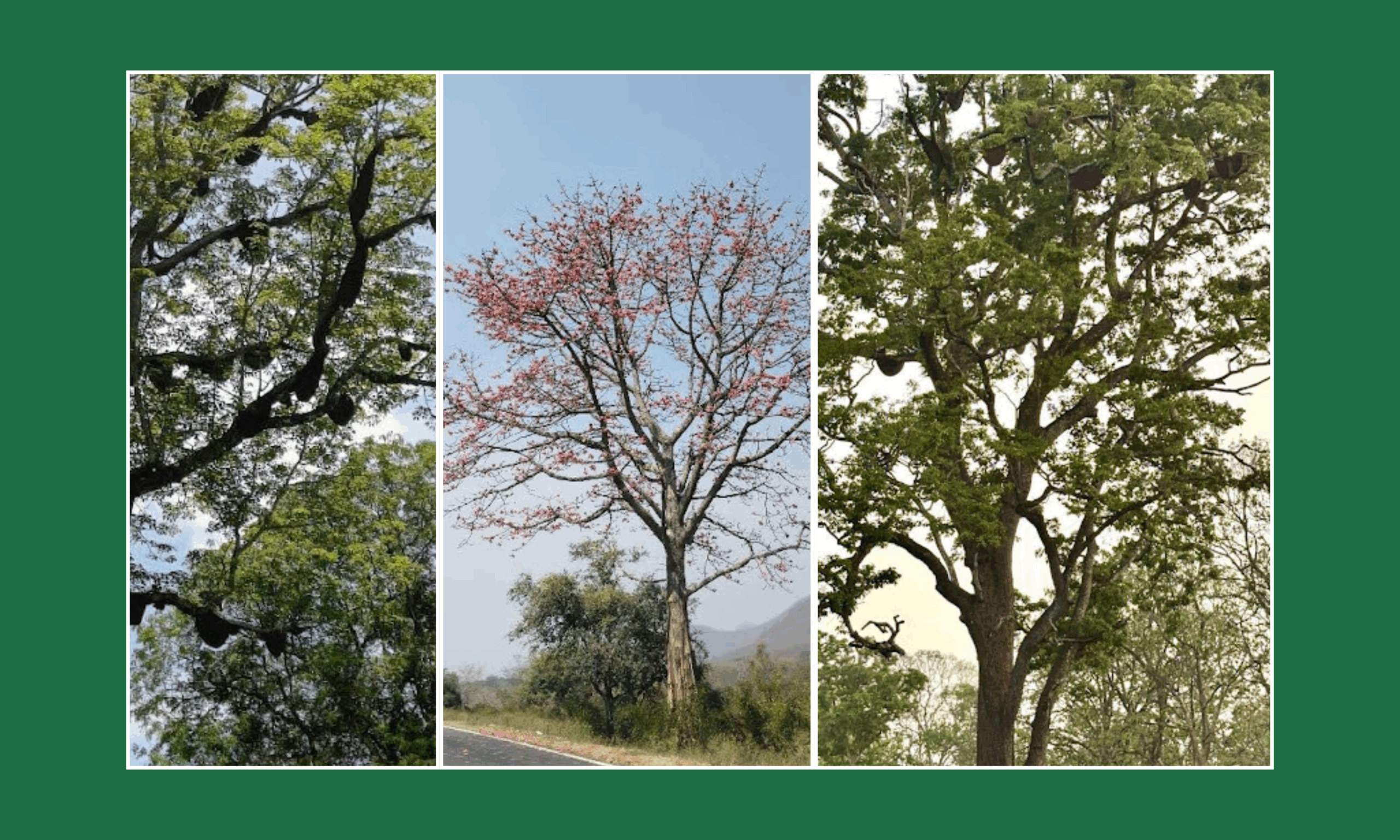April 17, 2024
By Harshavardhini Angappan
Team: Paul Blanchflower (Auroville Botanical Gardens [AVBG]), Manjula Arumugam (AVBG), Monal Singh (Kishan Bagh), Harshavardhini Angappan (Keystone Foundation)
The Indian TGBS assessment team, Auroville Botanical Gardens, visited the ‘Ka Synjuk Ki Hima Arliang Wah Umiam Mawphlang Welfare Society (SYNJUK)’s restoration site. The society, formed by the Khasi people, is committed to restoring Mawlphlang’s watershed and sacred groves—a 27,000 ha site located in the East Khasi Hills. This is the first Plan Vivo-Certified community-based REDD+ project—an exciting model of community-based restoration.
The team assessed 110 acres of the project, which has been declared a community protected forest by the community, and is undergoing Assisted Natural Regeneration (ANR). The community’s goal—which they have been working towards since 2018— is to revive their sacred grove. Before restoration interventions, the land was intensively used for felling of wood for charcoal production and hunting—leaving the forest highly degraded and prone to fires.
Plan Vivo—one of the technical partners involved in developing TGBS and the carbon credit certifying body for the SYNJUK project—asked and sponsored the hub to assess this piece of land for TGBS before the launch of the standard (TGBS) in October.
After reaching Mawphlang, the team visited various sites: the Mawphlang sacred grove, David Scott trail (a famous trekking route in India, which was unfortunately affected by a tourist-started forest fire) , the assessment site, and a nursery to build a reference model. In each site, we recorded a baseline, and performed a Rapid Assessment Study (RAS) to understand current site conditions. Meeting and Focus Group Discussions were also held with the community members to understand social aspects of restoration, including how the project provided alternative livelihoods, the process of community collaboration, and local perspectives on forest conservation.
Based on the information gathered, the assessors filled and submitted the assessment form to the hub, which will be used along with the application form from the client to work towards TGBS certification. This experience provided us with valuable insights into the work of community-led conservation across different sites in India, as well as hands-on experience in biodiversity assessments.


















